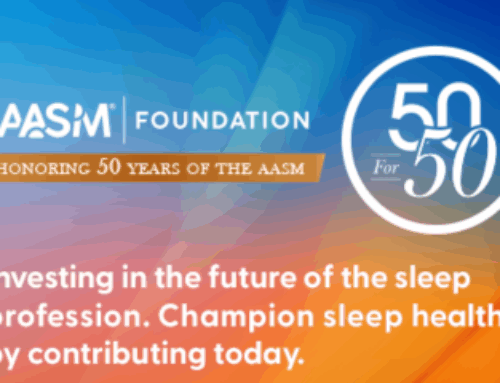The AASM Foundation awarded nearly $850,000 in funding for the Strategic Research Award, supporting investigator-initiated, high-impact projects. The funded projects will explore the relationship between rest-activity rhythms and cardiovascular disease outcomes, expand understanding of idiopathic hypersomnia pathophysiology, investigate new oral appliance therapy models for obstructive sleep apnea and explore the potential role of epigenetic modification of PAX8 in hypersomnia. Congratulations to the four recipients of the 2020 Strategic Research Award!
2020 Strategic Research Award Recipients
Nadia Gosselin, PhD
CIUSSS-Nord-de-l’Ile-de-Montréal
Investigating sleep microarchitecture to better understand idiopathic hypersomnia pathophysiology and phenotype heterogeneity
Idiopathic hypersomnia (IH) is a poorly defined nosological entity and shows phenotype heterogeneity. Sleep microarchitecture has the potential to explain part of IH pathophysiology and heterogeneity, as it can inform about homeostatic process efficiency, neural synchrony and sleep consolidation. This project proposes to characterize IH sleep microarchitecture and identify clinically-relevant subtypes based on their microarchitecture. This project could improve our understanding of IH and reveal subtypes, which are necessary steps before developing more targeted interventions.
David Plante, MD, PhD
University of Wisconsin-Madison
The Role of Epigenetic Modification of PAX8 in Hypersomnia
Excessive sleep duration is a debilitating aspect of IH, the pathophysiology of which is unknown. This project will determine whether epigenetic modification of PAX8 differs between patients with IH and healthy persons and whether epigenetic modification of PAX8 is a state or trait marker for hypersomnia. The results of this innovative project will advance the diagnosis and treatment of patients with hypersomnia, with high relevance and impact to the field of sleep medicine.
Scott Sands, PhD
The Brigham and Women’s Hospital, Inc.
Mechanism-Based Precision Medicine for Oral Appliance Therapy: A Prospective Observational Study
Oral appliances are highly effective for many patients with sleep apnea, but efficacy is unpredictable and dependent on several endotypic traits, such as loop gain, collapsibility, arousal threshold and palate prolapse. This project will test leading endotype models for predicting responses from home sleep studies with EEG and prospectively test a refined model. This project will demonstrate utility for mechanistic phenotyping in clinical practice and enable precision mechanism-driven decision-making for oral appliance therapy.
Qian Xiao, PhD
The University of Texas Health Science Center at Houston
Sleep and Rest-Activity Rhythms and Cardiovascular Health in the Elderly: the Role of Metabolomics and Inflammatory Pathways
Rest-activity rhythms play an important role in cardiovascular health. This project will comprehensively characterize the diurnal and rhythmic patterns of rest and activity, examine the prospective relationship between rest-activity rhythms and cardiovascular disease outcomes and identify the underlying metabolic and inflammatory pathways that may drive the cardiovascular effects of rest-activity rhythms. This project will deepen the understanding about the biological pathways linking circadian dysfunction with cardiovascular health.






